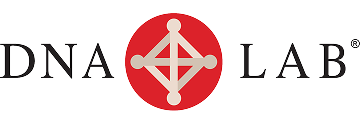Home Germline Genomics Whole Genome Sequencing (WGS)
Whole Genome Sequencing (WGS) is the most comprehensive genetic test available today. It analyzes the entire human genome – including both coding and non-coding regions – to detect genetic variants that may be associated with inherited or rare diseases.
WGS can be performed on the proband (patient or fetus), or as a family trio (proband plus two family members), providing deeper insights into inherited conditions.
Whole Genome Sequencing may be considered for:
| Specimen Requirements | |
|---|---|
| Clinical usage | Diagnostic whole genome sequencing and mitochondrial genome sequencing of the proband / fetus or proband and 2 family members / fetus and 2 family members • Mean coverage of 30X throughout the genome and complete coverage of > 5,400 disease-associated genes. • Reliably detects copy number variants (CNVs) of ≥ 3 exons as well as large-scale CNVs such as microdeletions and other gene/chromosomal-level events. • Analysis of single nucleotide variants (SNVs), deletions, and duplications in coding and non-coding regions of the genome • Mitochondrial genome sequencing and analysis of SNVs as low as 5% heteroplasmy • Rule-out of short tandem repeat (STR) expansion in more than 30 genes, including those associated with intellectual disability, epilepsy, and neuromuscular and movement disorders • Spinal Muscular Atrophy (SMA) screening via SMN1 copy number characterization NOTE (Applicable for WGS and WES): – All variants are analyzed according to American College of Medical Genetics and Genomics (ACMG) guidelines, and pathogenic, likely pathogenic, and variants of uncertain significance (VOUS) are reported. Variant analysis is phenotype-driven to minimize the reporting of VOUS. – Familial testing for VOUS is complimentary for up to two variants in two family members. – One complimentary reanalysis is included and can be requested at any time. The specimen will be tested by our qualified referral lab |
| Type of sample | For fetus: • 20ml Amniotic Fluid (Sterile 15mL conical tubes) • 10 – 15pcs Chorionic Villus Sample (CVS) (Sterile 15mL conical tubes with Normal Saline) • 30mg Tissue of Product of Conception (POC) (Sterile 50ml conical tube with Normal Saline) • 1ml Fetal Blood (EDTA Tube) IMPORTANT: • For fetus sample, 3ml Maternal Blood (EDTA Tube) is compulsory to rule out maternal cell contamination PRENATAL POLICY: WES/WGS can ONLY be performed on affected fetus with prenatal indications. Hence, the WES/WGS cannot be used to screen prenatal samples without any clinical indication. There is NO secondary finding option for ongoing pregnancy. For newborn baby: • Dried Blood Spots: 5 spots (DBS card) • 1ml Blood (EDTA Tube) For individual: • Dried Blood Spots: 5 spots (DBS card) • 3ml Blood (EDTA Tube) • Buccal Swab (2 swab samples in Sterile Container, WITHOUT Gel) NOTE: DBS card will ONLY be provided upon request |
| Patient requirement | – Gestation age CVS: 10 – 12 weeks – Gestation age for Amniotic Fluid: ≥15 weeks – No fasting required IMPORTANT: • Please sign the International Informed Consent form • Please sign and tick the appropriate selection in the Patient Secondary Findings Consent and Family Member Consent to Testing (if TRIO) sections in the consent form NOTE: Patient’s clinical presentation is an essential part of fully interpreting genetic test results. Kindly include any applicable medical records or clinical notes with the sample at the time of test submission. |
| Storage & transportation | Sterile Tube / EDTA Tube – Please store at 4°C if to be kept overnight Buccal Swab / DBS card – Please store at room temperature |
| Turnaround Time (TAT) | WGS Proband: 5 – 6 weeks WGS Trio: 9 – 10 weeks |

Allow us 2-3 days on weekends to tend to your enquiry.
Phone:
+603-7491 1700
Hotline:
+6019-600 2700
Fax:
+603-7499 3997
Our Services
Our Tests
Phone: +603-7491 1700
Hotline: +6019-600 2700
Fax: +603-7499 3997

Monday-Friday
8.30 am – 5.30 pm
Saturday
8.30 am – 1.00 pm